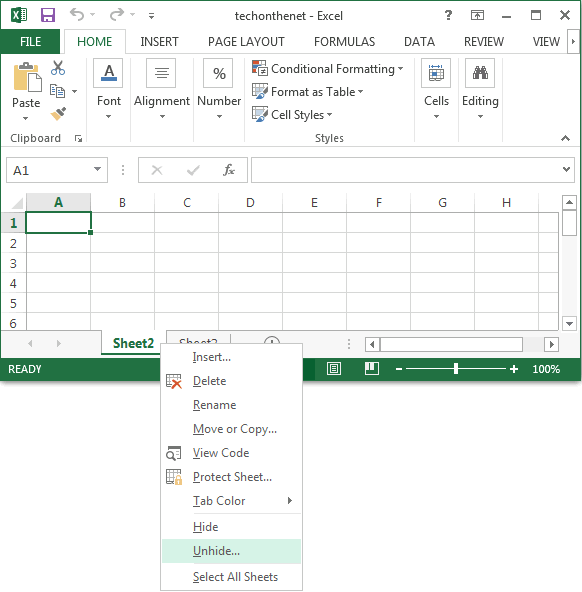Unhide Excel's Protected Sheets Easily: Simple Guide

Have you ever encountered the frustrating scenario where an Excel workbook is locked, and you can't access the sheets you need? Whether you're a data analyst, a financial expert, or just someone who works with spreadsheets, this guide will help you unhide Excel's protected sheets with ease. In this comprehensive tutorial, we'll walk through various methods to remove protection from Excel sheets, ensuring you can work efficiently without hurdles.
Understanding Excel Protection

Excel provides protection features to safeguard data and prevent unauthorized changes. Here are the main types of protection:
- Workbook Protection: Prevents users from adding, deleting, or renaming sheets.
- Sheet Protection: Locks specific sheets to restrict cell edits, formula tampering, or formatting changes.
- Cell Locking: Individual cells can be locked to avoid accidental edits when the sheet is protected.
While this protection is essential for data integrity, there are times when you need to unhide or modify these sheets.
Methods to Unhide Protected Sheets

Using VBA to Remove Protection

Visual Basic for Applications (VBA) is a powerful tool in Excel for automating tasks. Here’s how you can use VBA to bypass protection:
- Open your Excel workbook.
- Press Alt + F11 to open the VBA Editor.
- In the VBA Editor, go to Insert > Module to create a new module.
- Enter the following code:
Sub UnhideProtectedSheet() Dim ws As Worksheet Dim isPasswordProtected As Boolean For Each ws In ActiveWorkbook.Worksheets isPasswordProtected = ws.ProtectContents If isPasswordProtected Then ws.Unprotect Password:=“YourPasswordHere” ws.Visible = xlSheetVisible End If Next ws End Sub - Replace “YourPasswordHere” with the actual password if you know it.
- Run the macro by pressing F5 or click the Run button in the VBA Editor.
💡 Note: This method can expose sensitive data, so use it with caution.
Password Cracking Tools

For users without the password, third-party tools like Passware, Excel Password Recovery, or Elcomsoft can attempt to recover or crack the password. Here are the steps:
- Download and install a trusted password recovery tool.
- Open the tool and select your Excel file.
- Choose an attack method (brute-force, dictionary, etc.).
- Initiate the cracking process.
Be aware that this method can be time-consuming and potentially illegal if used without permission.
🔐 Note: Password cracking tools should only be used for legal purposes, like recovering your own forgotten passwords.
Manual Approach to Unprotect Sheets

If you remember or know the password, here’s a manual method to unprotect:
- Open your Excel workbook.
- Right-click on the protected sheet’s tab.
- Select Unprotect Sheet and enter the password when prompted.
- If you have admin rights or the password, you can also unprotect the entire workbook via Review > Unprotect Workbook.
Post-Protection Tasks

After you have unhidden or unprotected the sheet, consider the following:
- Make a backup of the original file to prevent data loss.
- If unauthorized changes were made, inform the sheet owner or data manager.
- Revisit your protection strategy to avoid future issues or consider using different protection methods.
Remember, while this guide aims to empower you to manage your Excel sheets, ethical considerations must be at the forefront when dealing with protected data. Always ensure you have the necessary permissions to modify workbooks, and keep backups to prevent accidental data loss or corruption.
Is it legal to unprotect an Excel sheet that I didn’t create?

+
No, unless you have explicit permission or the legal right to do so. Unprotecting a sheet without authorization can be considered data tampering or theft.
Can I unhide sheets in older versions of Excel?

+
Yes, the methods described work with older versions of Excel, though some syntax or features might differ.
What if I use VBA to unprotect sheets and it doesn’t work?

+
Ensure the password you’re using is correct. If it’s not, or if the protection is more complex (like user-level protection), you might need specialized tools or contact the creator of the workbook.


